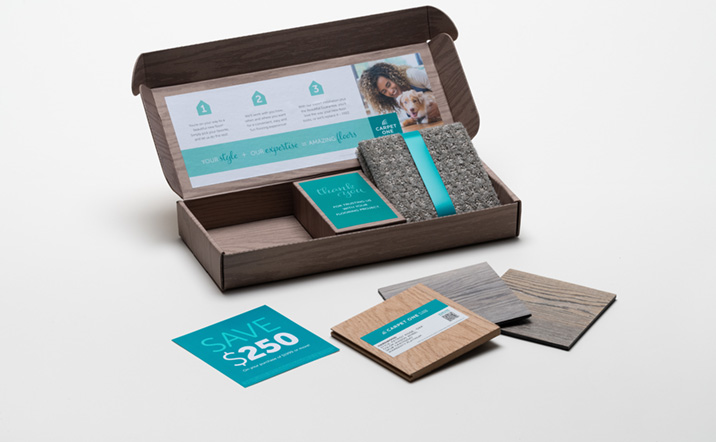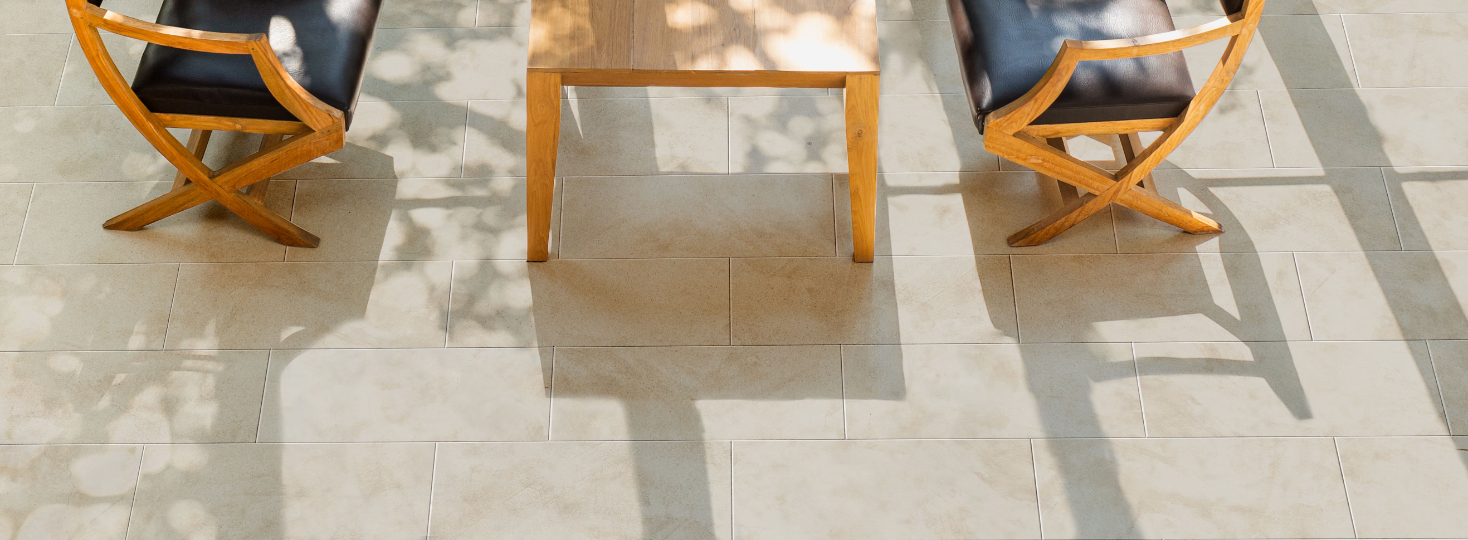
Porcelain Tile Flooring
Whatever the shape or design, porcelain floor tiles can add durability, convenience, and style to your busy household.

Whatever the shape or design, porcelain floor tiles can add durability, convenience, and style to your busy household.

Our designers share tips and top trends for every season. Discover your next home project with the help of our blog.

Get up to six samples delivered to your door.

Do your design plans call for a resilient and long-lasting tile floor with a particular shape or style? You can easily find a porcelain floor tile to match your specific needs and aesthetic.
Products range from small squares or hexagons featuring 3D-printed designs to oversized rectangles authentically replicating stone, hardwood, and other natural materials. Whatever the shape or design, porcelain floor tiles can add durability, convenience, and style to your busy household.
While you might be familiar with the strength of porcelain tiles from your neighbor's gorgeous pool renovation, how is porcelain actually made? Porcelain floor tiles are crafted of fine, dense clay mixed with other natural minerals and are fired at high temperatures. This results in a density that's more resistant to moisture and therefore perfect for kitchens, bathrooms, or mudrooms.
You may notice you have glazed and unglazed options when shopping for porcelain floor tile. But which one is better? Well, that depends on what matters most to you. Unglazed tiles often provide more slip resistance along with a textured, matte finish, making them ideal for bathroom floors or outdoor pool areas. Glazed porcelain tiles can appear smoother, with some able to resist stains and last longer than other types of flooring.
The world is your oyster when it comes to designing with porcelain floor tiles, which are available in many shapes and sizes. Thanks to high-tech printing technology, you can easily find porcelain tiles that realistically mimic marble, granite, steel, limestone, and any other traditional flooring material at a lower price.
For instance, wood look porcelain tile replicates the texture and grain of real wood while marble look porcelain tile perfectly emulates the elegant veining of the natural stone. Or, if you’re looking for a more unique profile, check out porcelain’s patterned designs and custom shapes to perfectly complement your home decor.
Unlike porcelain dishware or dolls, porcelain tile flooring is incredibly tough. The hard, solid tiles can hold up to your pack of kids running in and out of the house. They're the same thickness as standard ceramic tiles but heavier and more impervious to water, stains, and damage.
It’s easy to keep porcelain floor tile well maintained by regularly sweeping, vacuuming, and mopping to remove dirt and debris. Occasionally deep clean your porcelain bathroom tiles to sanitize them. Check with the manufacturer for care instructions, as best practices and recommended cleaning products can vary based on your porcelain tile.
No need to worry about replacing your floors when you opt for porcelain floor tiles. These tiles can last decades under the right conditions. These include:
We suggest you look at the warranty protection that comes with your tile . Carpet One Floor & Home offers warranties that give you peace of mind and ensure you enjoy your new porcelain tile floor for years to come.
Porcelain and standard ceramic tiles have the same challenging and labor-intensive installation process, which involves preparing the surface, setting the tile, and filling in the joints with grout.
No matter which tile you choose, we highly recommend using a professional installer to ensure the project is perfectly installed and meets warranty standards.
When you invest in porcelain tile for your home, you’ll thank yourself for the list of benefits it contributes.
But, like with all good things, there are a couple of disadvantages, too.
Many people wonder about the differences between ceramic and porcelain tile, and there are a few. For instance, porcelain tiles are fired in the kiln at a higher temperature than ceramic tiles, making them more dense.
But it's important to acknowledge that one tile isn't inherently better than the other. To ensure you select the perfect tile that has recommended applications that match your project needs, we recommend talking to an experienced flooring professional.
Yes! Porcelain tile flooring can work well in any room of your home, as long as your subfloor can support its heavy weight. The differences between types of tile are in the construction of the tile. Porcelain is made out of finer clays and dust, resulting in a denser material that makes porcelain good for outdoor use in all climates.
Porcelain bathroom tile is especially worthwhile, as it makes bathtime with the kids a cinch. Plus, it's durable enough for their constant running around and are easy to clean after a messy day of fun.
Both porcelain and ceramic tiles can chip. Their hardness and rigidity can also lead to cracking in some situations, like if your home's foundation settles.